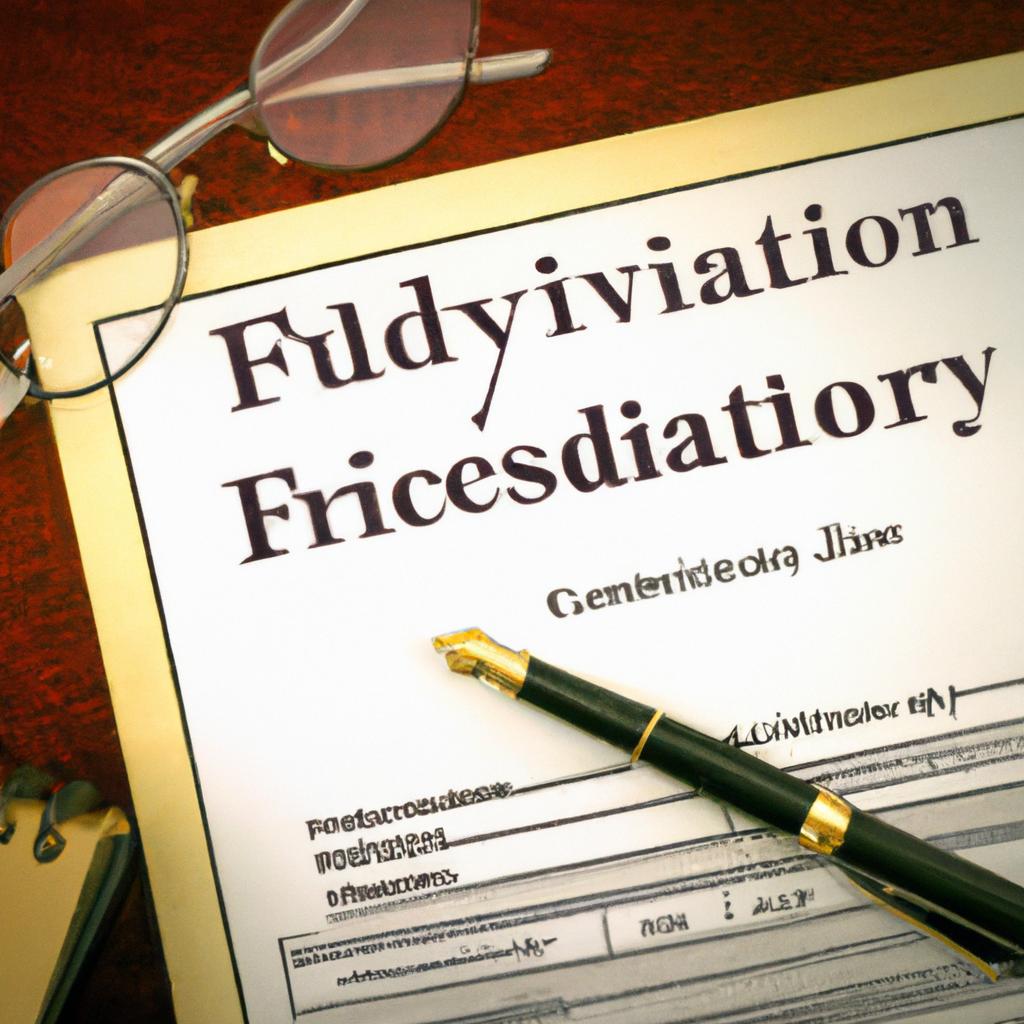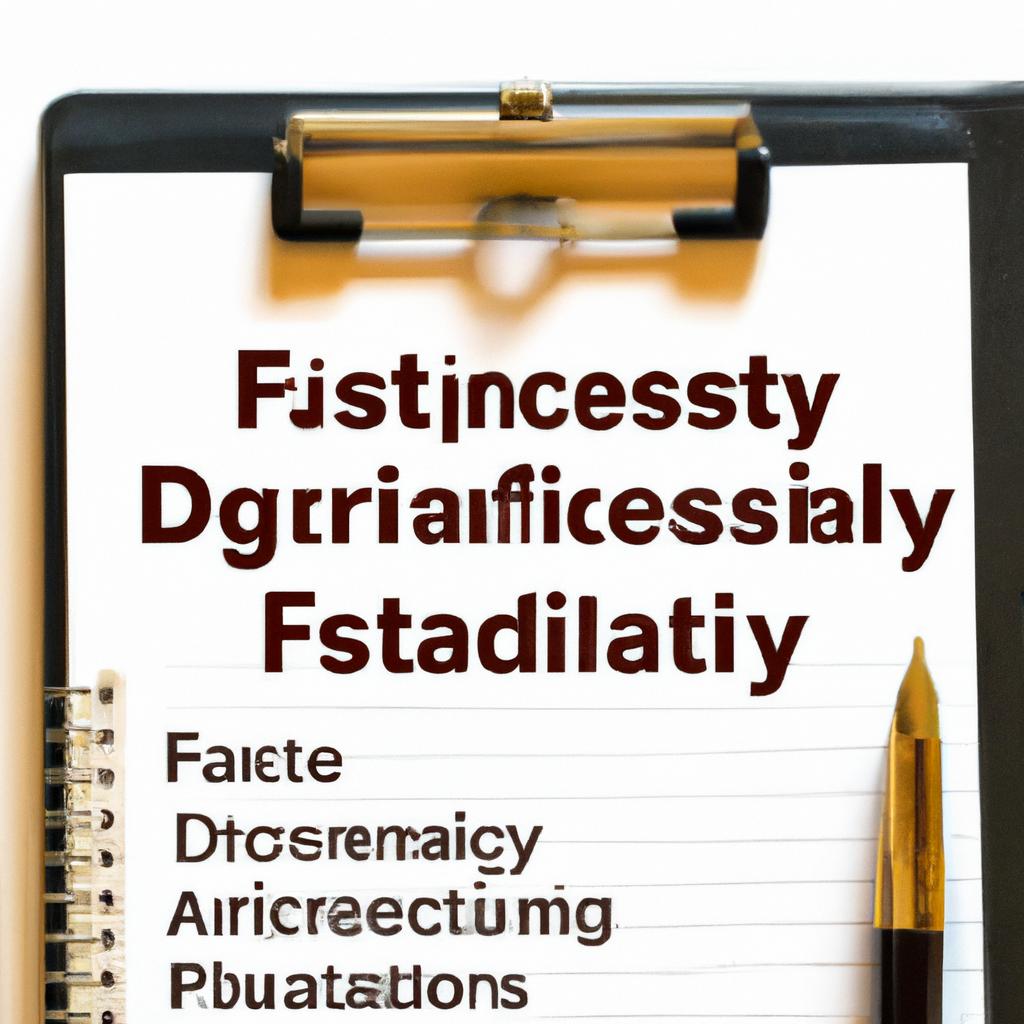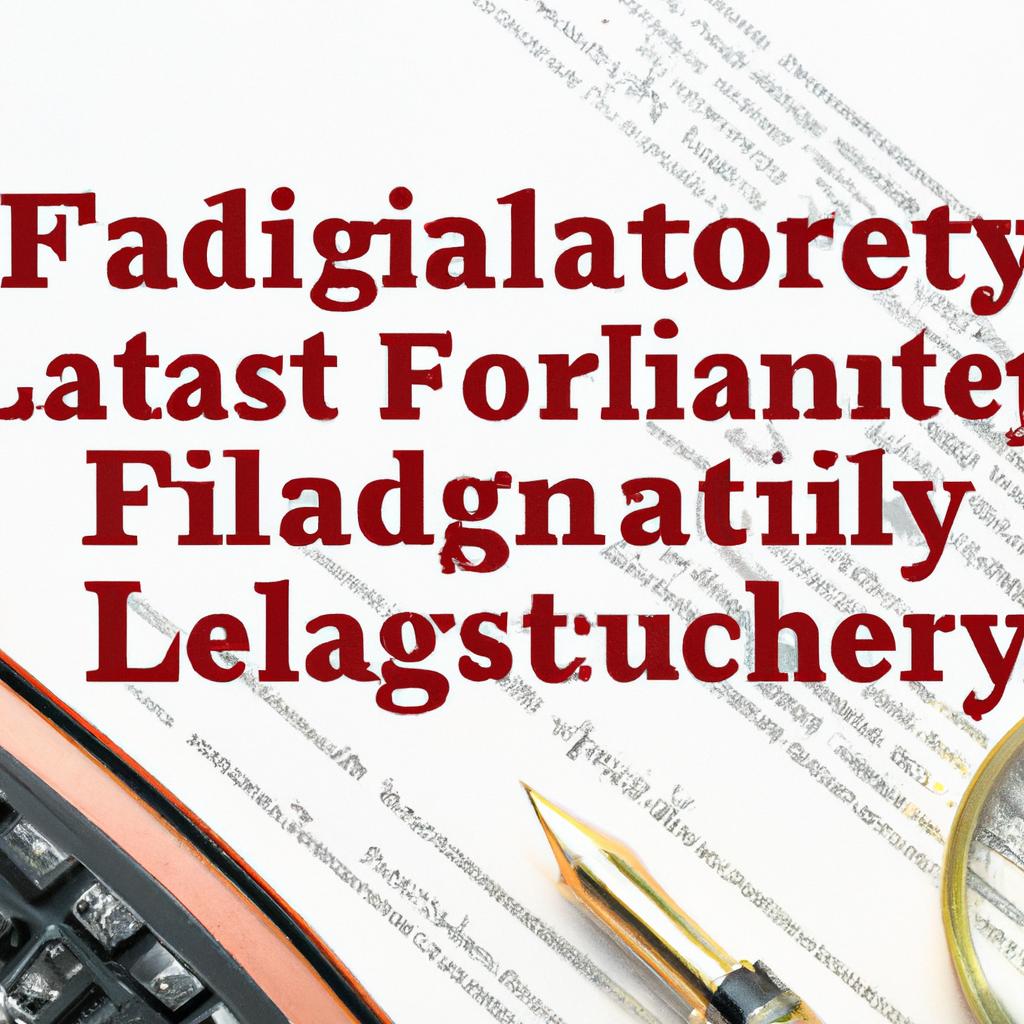In the complex world of estate planning and administration, the concept of fiduciary estate holds a critical role in safeguarding the interests of beneficiaries and ensuring the proper distribution of assets. As experienced lawyers at Morgan Legal Group in New York City, we understand the intricate nuances of fiduciary responsibilities and the importance of upholding these duties with unwavering integrity. In this article, we delve into the fundamental principles of fiduciary estate and provide insights into navigating this intricate legal landscape.
Understanding Fiduciary Duties in Estate Planning
When it comes to estate planning, understanding fiduciary duties is paramount. A fiduciary is someone who is legally obligated to act in the best interests of another party. In the context of estate planning, fiduciary duties generally refer to the responsibilities of trustees, executors, and agents appointed under a power of attorney. These individuals must uphold the highest standard of care and loyalty when managing assets and making decisions on behalf of the estate.
One of the key fiduciary duties in estate planning is the duty of loyalty. This means that the fiduciary must always act in the best interests of the estate and its beneficiaries, putting their needs above their own. Additionally, fiduciaries have a duty of care, which requires them to make informed and prudent decisions when managing the estate’s assets. Failure to adhere to these duties could result in legal consequences, so it is crucial for fiduciaries to understand and fulfill their obligations with diligence and integrity.

Key Considerations for Appointing a Fiduciary in Your Estate
When appointing a fiduciary in your estate, there are several key considerations to keep in mind to ensure that your wishes are carried out effectively and efficiently. It is important to choose someone who is trustworthy, reliable, and has the necessary skills and knowledge to manage your estate. Here are some important factors to consider when selecting a fiduciary:
- Trustworthiness: The fiduciary you choose should be someone you trust implicitly to act in your best interests and follow your instructions.
- Financial acumen: Your fiduciary should have a good understanding of financial matters and be able to manage your assets wisely.
- Communication skills: It is essential that your fiduciary is able to communicate effectively with beneficiaries and other parties involved in the estate.
- Legal knowledge: Choose a fiduciary who has a good understanding of estate planning laws and regulations to ensure that your estate is handled in compliance with the law.

Best Practices for Managing a Fiduciary Estate
In managing a fiduciary estate, it is crucial to adhere to best practices to ensure the proper administration and distribution of assets. One key aspect is to maintain accurate records of all financial transactions and documentation related to the estate. This includes keeping detailed records of income, expenses, investments, and any distributions made to beneficiaries.
Additionally, it is important to regularly communicate with beneficiaries and provide them with updates on the status of the estate. Transparency and open communication can help prevent misunderstandings and disputes among heirs. Furthermore, seeking the guidance of a knowledgeable attorney specializing in fiduciary matters can provide valuable insight and assistance in navigating the complexities of managing a fiduciary estate.

Navigating Legal Challenges in Fiduciary Estate Administration
requires a deep understanding of the complex laws and regulations surrounding the distribution of assets and the execution of a decedent’s wishes. One of the key challenges that fiduciaries often face is the interpretation of Wills and trusts, ensuring that the intentions of the deceased are carried out accurately and in accordance with the law.
Another common legal challenge in fiduciary estate administration is the potential for disputes among beneficiaries. When multiple parties are involved in the distribution of assets, conflicts can arise over inheritances, property rights, and financial interests. As a fiduciary, it is essential to handle these disputes with diligence and impartiality, ensuring that all parties are treated fairly and that the estate is settled in a timely manner. Morgan Legal Group has extensive experience in navigating these legal challenges and can provide expert guidance to fiduciaries throughout the estate administration process.
Q&A
Q: What is a fiduciary estate?
A: A fiduciary estate refers to the legal responsibility of a trustee or executor to manage and distribute assets in accordance with the wishes of the deceased.
Q: Who typically serves as a fiduciary in an estate?
A: A fiduciary in an estate is usually a trusted individual or institution appointed by the deceased to carry out their final wishes. This could be a family member, friend, attorney, or financial institution.
Q: What are the key responsibilities of a fiduciary estate?
A: The key responsibilities of a fiduciary estate include managing assets, paying debts and taxes, distributing assets to beneficiaries, and ensuring that all legal requirements are met.
Q: How does one establish a fiduciary estate?
A: A fiduciary estate is typically established through a will, trust, or other legal document that designates someone to act as a trustee or executor.
Q: Are there any specific legal obligations that fiduciaries must adhere to?
A: Yes, fiduciaries have a legal obligation to act in the best interests of the estate and its beneficiaries, to avoid conflicts of interest, to maintain accurate records, and to comply with all local laws and regulations.
Q: What happens if a fiduciary fails to fulfill their duties?
A: If a fiduciary fails to fulfill their duties, they may be held liable for any damages or losses incurred by the estate or its beneficiaries. They could also face legal action or removal from their position.
Q: Can a fiduciary estate be challenged in court?
A: Yes, a fiduciary estate can be challenged in court if there are concerns about the actions or decisions of the trustee or executor. Beneficiaries have the right to contest the administration of the estate if they believe their interests are not being properly served.
In Retrospect
In conclusion, understanding the concept of fiduciary estate is essential for anyone involved in managing estates or trusts. By recognizing the legal and ethical responsibilities that come with serving as a fiduciary, individuals can ensure that they meet the highest standards of care for the beneficiaries they serve. Whether you are a seasoned trustee or just beginning to navigate the complexities of estate planning, the principles of fiduciary duty will guide you in making sound decisions that honor the wishes of the decedent and protect the interests of those who stand to inherit. Remember, being a fiduciary is not just a role, but a responsibility to uphold the highest standards of honesty, integrity, and loyalty in administering an estate.
 Fiduciary Estate: Understanding the Basics and How it Can Protect Your Assets
Fiduciary Estate: Understanding the Basics and How it Can Protect Your Assets
When it comes to estate planning, many people are familiar with terms like wills, trusts, and probate. However, there is another important aspect of estate planning that is often overlooked – the concept of a fiduciary estate.
A fiduciary estate is a legal arrangement in which a person or entity manages the assets of another person, known as the beneficiary, for their benefit. This type of estate is established through a legal document called a trust, and the person or entity managing the trust is known as a fiduciary.
In this article, we will delve deeper into the concept of fiduciary estate, its benefits, and how it can be a valuable tool for protecting your assets and ensuring your loved ones are taken care of after you are gone.
Types of Fiduciary Estate
There are two main types of fiduciary estate – living trusts and testamentary trusts.
Living Trusts – A living trust, also known as an inter vivos trust, is a type of trust that is created during the lifetime of the grantor (the person establishing the trust). The grantor transfers their assets into the trust, and the trustee (the person managing the trust) is responsible for managing and distributing the assets according to the terms and conditions outlined in the trust document.
Testamentary Trusts – A testamentary trust, also known as a trust under will, is a trust that is created through a person’s will after their death. The trust does not take effect until the grantor passes away, and the assets are transferred into the trust by the executor of the will. The trustee then manages the assets and distributes them according to the instructions in the will.
Roles and Responsibilities of a Fiduciary
As mentioned earlier, a fiduciary is the person or entity responsible for managing the assets in a fiduciary estate. This role carries a significant amount of responsibility as the fiduciary is required to act in the best interest of the beneficiary at all times.
The duties and responsibilities of a fiduciary may include:
1. Management of Assets – A fiduciary is responsible for managing and investing the assets in the trust in a prudent manner. This includes keeping accurate records, filing tax returns, and making informed investment decisions.
2. Distributions – A fiduciary may be responsible for distributing income or assets from the trust to the beneficiary according to the terms outlined in the trust document.
3. Accounting – A fiduciary must keep accurate records of all income, expenses, and distributions from the trust and provide an annual accounting to the beneficiaries.
4. Fiduciary Taxes – Depending on the type of trust, a fiduciary may be responsible for filing tax returns on behalf of the trust and paying any applicable taxes.
Benefits of a Fiduciary Estate
1. Avoiding Probate – One of the biggest advantages of a fiduciary estate is that it allows assets to pass directly to the beneficiaries without going through probate. This can save time and money for the beneficiaries and ensure that the assets are distributed according to the wishes of the grantor.
2. Protecting Assets – By placing assets in a fiduciary estate, they can be protected from creditors, lawsuits, and other potential risks. This is particularly beneficial for high net worth individuals who want to ensure their assets are safeguarded for their loved ones.
3. Providing for Loved Ones – A fiduciary estate allows for a detailed and long-term plan for the care and support of loved ones. This can include managing funds for children until they reach a certain age or providing for a disabled family member.
4. Privacy – Unlike a will, which becomes public record upon the grantor’s death, a trust offers a higher level of privacy. This means that the details of the trust and its assets remain confidential and out of the public eye.
Practical Tips for Establishing a Fiduciary Estate
1. Choose a Trusted Fiduciary – It is crucial to choose a fiduciary who is competent, trustworthy, and has a good track record of managing finances. This can be a family member, a close friend, or a professional fiduciary.
2. Plan Early – It is never too early to start planning for your estate. Even if you do not have significant assets at the moment, a fiduciary estate can be beneficial in the long run.
3. Consult with an Attorney – It is important to seek the advice of a qualified attorney who specializes in estate planning when establishing a fiduciary estate. They can provide valuable insights and ensure that all legal requirements are met.
In Conclusion
Fiduciary estate may not be a well-known term, but it is an essential aspect of estate planning. By establishing a trust and appointing a fiduciary, you can ensure that your assets are protected and your loved ones are taken care of according to your wishes.
Remember to plan early, choose a trusted fiduciary, and consult with a professional to ensure that your fiduciary estate is set up correctly. With the help of a fiduciary estate, you can have peace of mind and know that your assets and loved ones are in good hands.

